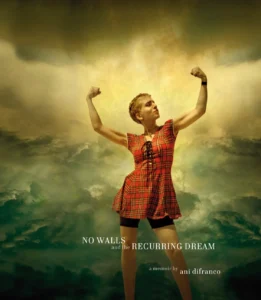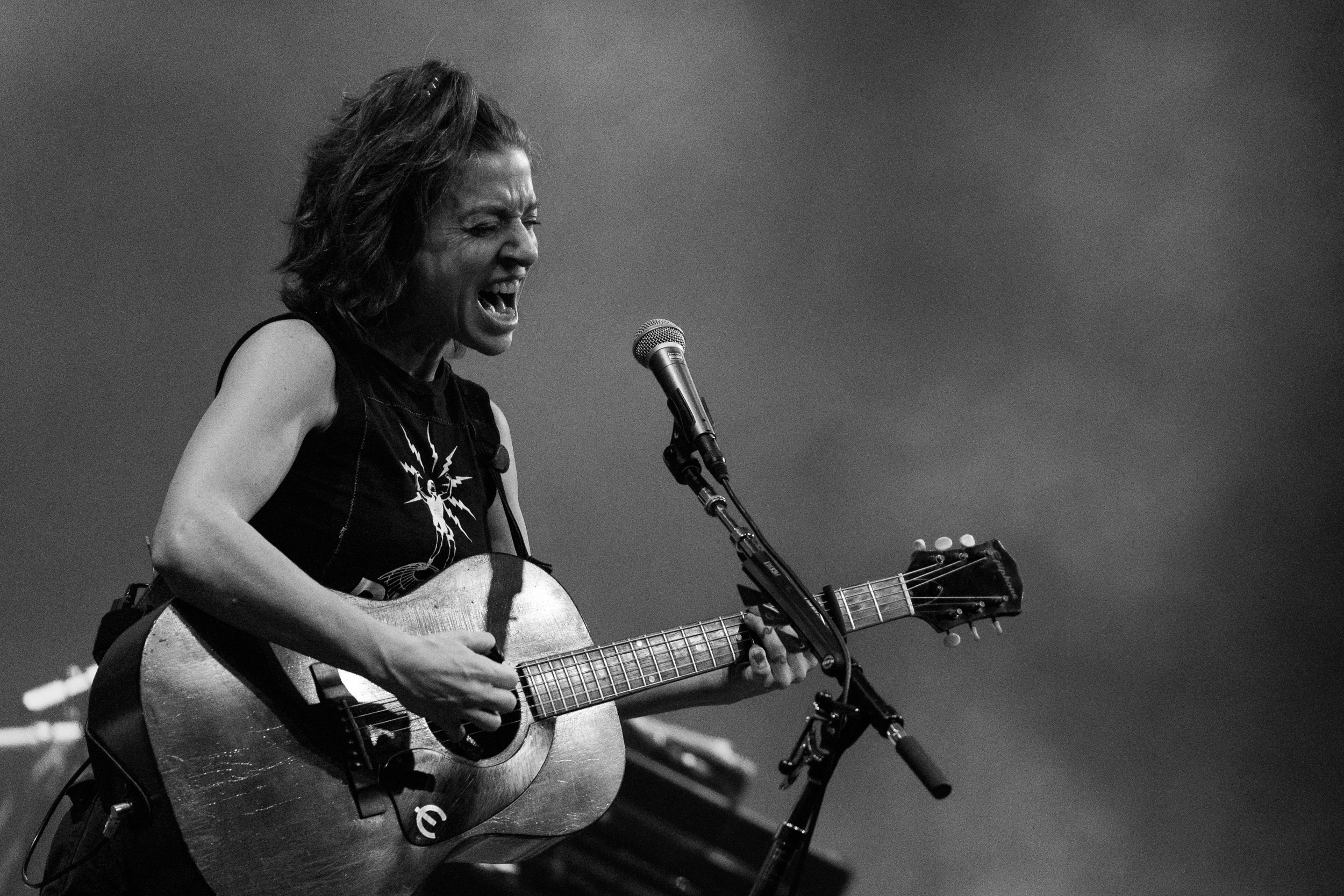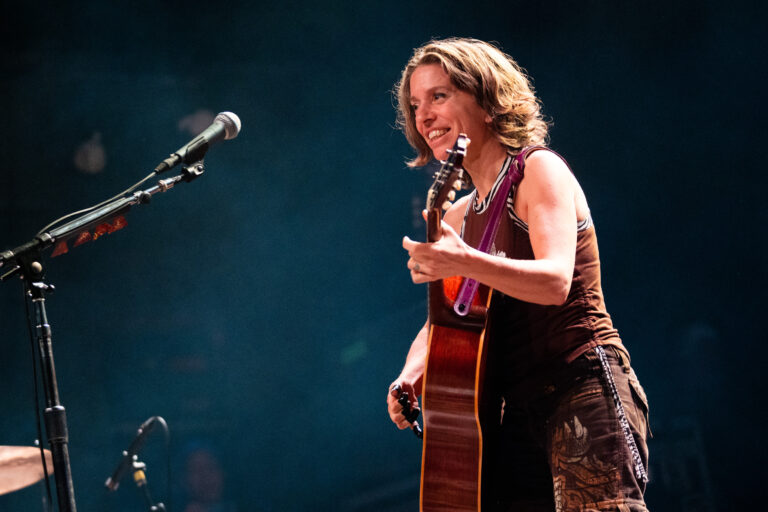Singer-songwriter, guitarist, and feminist Ani DiFranco performs Saturday, September 9 at Ellnora, The Guitar Festival at the Krannert Center for the Performing Arts in Urbana. This Grammy-winner created her own record company, Righteous Babe Records, in 1990. She’s released more than 20 studio albums featuring folk, funk, hip hop, jazz, soul and electronica. Before leaving New Orleans for her fall tour, Ani spoke by phone with IPM’s Kimberlie Kranich.
Kranich: Is there anything that you’re looking forward to?
DiFranco: I haven’t played in a little while. I feel excited just to be playing music again. The experience of making music of playing, of singing and sort of hearing or sensing the spirit enter the room, you know, which is not something I feel like I can dictate or, or just make happen, but it’s something that, that happens if I just allow it to happen, just try to connect with myself and open, connect with other people.
KK: Of course, you’re a proud feminist icon whose music is personal and political. So, let’s just dig in. Legal access to abortion across the country is no longer a right?
AD: Yeah, I mean, it’s devastating to young women who find themselves with unwanted pregnancy, any aged woman who find themselves with an unwanted pregnancy and is forced to procreating. So, I think really the only way to get it off the table as this political game played with women’s lives is to make a constitutional amendment. That is, that is my long-range vision. And I know I’m not alone in it and, and all I can hope is that, you know, this backsliding is the last gasp of the old guard and the old way.
KK: Are you in New Orleans right now?
AD: I am about to leave on this tour here.
KK: So, what’s it like for you professionally and on the home front as you prepare to go on tour?
AD: I mean, it’s hard because I’m a parent too. So that’s always hard if reaching escape velocity. And you know, it’s hard on the kids too. It’s hard on the whole family unit to have the coming and going mom.

KK: I absolutely loved your memoir, No Walls And The Recurring Dream from 2019. My wife gave it to me for my birthday. So, in your book, you start off with your childhood. How does what you experienced as a child growing up in the family you grew up with inform the way you parent your children today?
AD: I mean, I was a super independent kid right from the beginning. I was empowered. I mean, I can picture my mother saying I respect your judgment, you know, figure it out, you know, and that impacted me very deeply. You know, I think that kind of treatment came very early on for me. So, I became very self-sufficient, very independent and I’ve sort of treated my kids much the same way. You know, I’ve got really independent, self-sufficient kids. You know, I mean, I think one of the main diseases in the family culture I grew up in was non communication, silence, avoidance.
AD: When I first started putting feminism in my songs and including my anger in my songs, you know, I started getting the charge of ‘angry woman.’ She’s an angry woman. You’re an angry woman. See me that moved through the world was very smiley, very friendly, very, not able to show her anger at all. You know, so it was very ironic that that was how I was labeled. You know, I almost feel like I had to, you know, excorcise is if you will, my mother’s anger that all of that had to move through me as it does generationally, you know, before I could even get to my own feelings because, you know, my mother was the only woman in the architecture department at MIT [Massachusetts Institute of Technology] in the sixties. And then she was a woman in a man’s world, you know, trying to, you know, work ten. times as hard to get anywhere in the professional world of architecture. And then she came home, and she was the wife, the mother, the housekeeper, the cooks, the cleaner, all of it. And it was too much.

KK: I love the stories of you on the road. So, there’s a story about this Lebanese restaurant…
AD: I was very young, and I was in New York City, and I had no money. And so, I was busking on the street and myself and my friend thought, well, ‘let’s go where people have money.’ We literally went to the financial district and started singing on the street and we sang hour after hour and very little money hit our guitar case. So, we’re trudging back out to the village and, and there’s a Lebanese diner that was closing, the metal gate was halfway down, but we were starving and there was nothing around and we poked our heads under the gate, and we were like, can we get a falafel? [They] got up from their table in their closed diner and went and made us a falafel and then saw the guitars and said, ‘play us a song.’ And we played them a song and they passed, you know, an aluminum tray around and we made five times as much money as we had all day up till then.
Singer-songwriter, guitarist, and feminist Ani DiFranco performs Saturday, September 9 at Ellnora, The Guitar Festival at the Krannert Center for the Performing Arts in Urbana. Krannert Center for the Performing Arts is an underwriter of Illinois Public Media.

